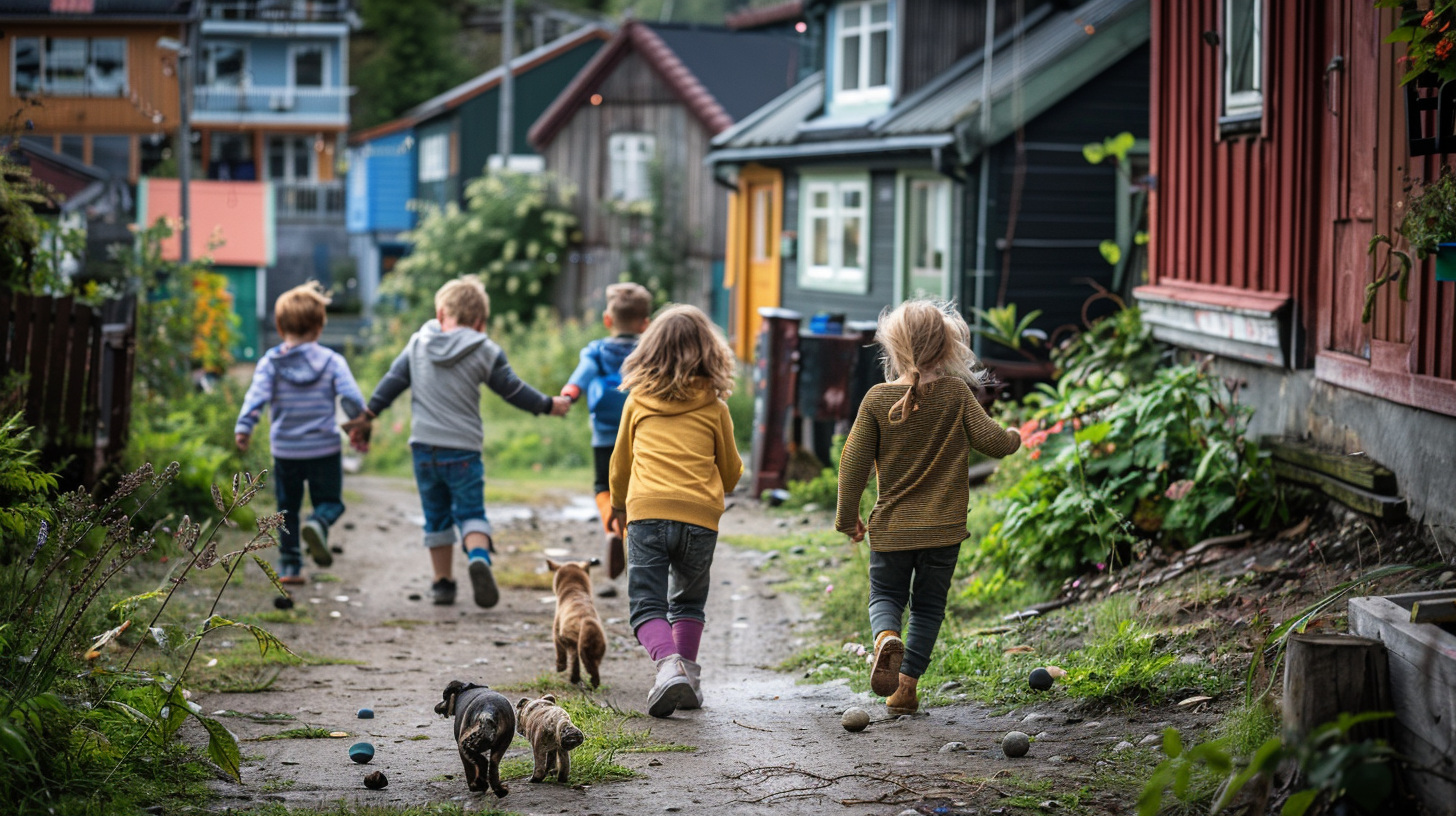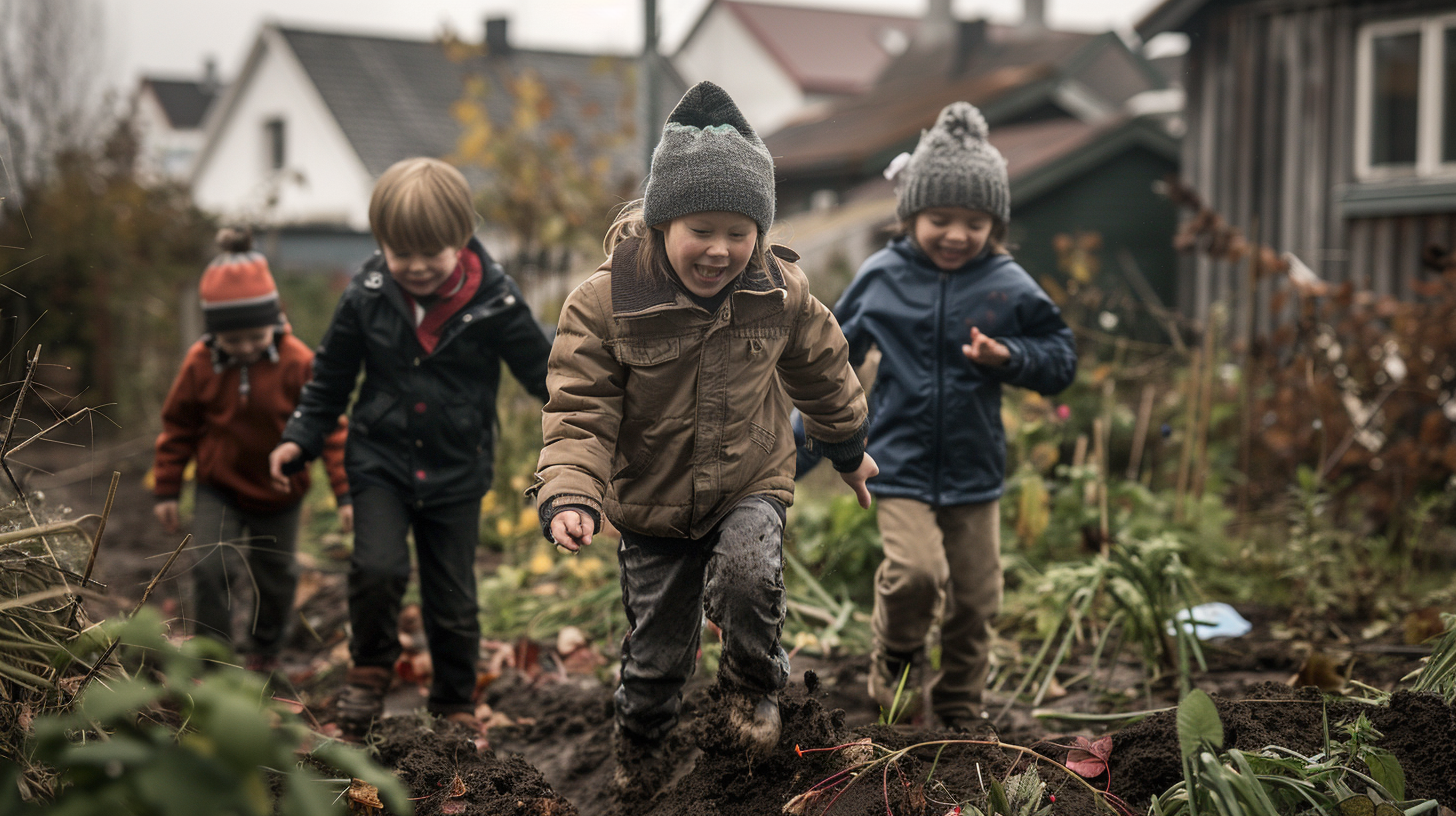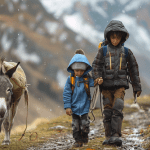- Electric cargo bicycles and cycling infrastructure make family mobility enjoyable and eco-friendly.
- In rural areas like the Orkney isles and Germany, children engage in outdoor activities independently, learning valuable life skills.
- Noteworthy is the emphasis on independence in parenting styles, contrasting high-inequality countries where different values prevail.
As we reflect on these diverse parenting approaches, one can’t help but wonder about the future of childhood experiences. How can societies ensure equal opportunities for all children, regardless of cultural norms or economic disparities? Let’s embrace the best practices worldwide to create a nurturing environment where every child can truly flourish.
It’s Not Just Norway Where the Kids Are All Right
Parenting practices in different countries can significantly impact children’s upbringing and experiences. The following excerpts showcase diverse perspectives on parenting styles and attitudes towards children in various regions:
Parenting Lifestyle in Norway
In Norway, a child-centric family lifestyle is celebrated, allowing children to explore independence and engage in meaningful experiences. The emphasis on outdoor play, community engagement, and sustainable living fosters a nurturing environment for kids.
Parents in Norway appreciate the benefits of communal living, urban design that supports active transportation, and opportunities for children to interact with nature and animals. The focus on fostering independence and resilience in children is evident in the cultural values upheld by Norwegian families.
Contrasting Parenting Experiences
Contrastingly, experiences from other parts of the world like St Albans, Hertfordshire in England, highlight challenges in granting children freedom and autonomy. The societal norms and concerns about child safety can sometimes restrict children’s ability to explore and develop self-reliance.
International Perspectives on Childhood
Similarities in parenting approaches are observed in countries like Germany, where children are encouraged to embrace independence from a young age. Activities such as forest outings, farm visits, and responsible decision-making contribute to a holistic childhood experience.
The values instilled in children by different cultures play a crucial role in shaping their character, resilience, and adaptability. The societal context, safety considerations, and community support systems all influence the ways in which children are raised and nurtured.
Addressing Parenting Challenges and Societal Inequalities
Discussions on parenting values and societal inequalities prompt reflection on the impact of wealth distribution, educational access, and parental priorities on children’s well-being. As countries strive to create inclusive environments for all children to thrive, questions arise about economic disparities, educational opportunities, and governmental policies that support equitable growth.
Understanding the diverse parenting philosophies across different countries sheds light on the interconnectedness of cultural norms, socio-economic factors, and educational systems in shaping children’s futures.
Preserving Trust and Autonomy in Childhood
Fond memories of trust and independence in childhood experiences, like attending sports events or participating in summer camps, underscore the importance of instilling confidence and self-reliance in children. Trusting children to navigate certain situations independently can build resilience, self-esteem, and a sense of responsibility.
Conclusion
The diversity of parenting experiences and cultural influences highlighted in the anecdotes from various countries exemplifies the multifaceted nature of childhood development. Acknowledging the value of independence, community support, and inclusive environments for children can inspire positive changes in parenting practices worldwide. Embracing a child-centric approach that prioritises autonomy, creativity, and resilience can pave the way for a brighter future for the next generation.

| Key Points | Details |
|---|---|
| Parenting in Norway | The article showcases the child-centric family lifestyle in Norway, emphasising independence, communal living, and sustainable practices. |
| Contrasting Parenting Styles | Readers share personal experiences comparing parenting norms in Norway with other countries, highlighting differences in safety concerns, independence, and societal attitudes. |
| Impact of Cultural Roots | The influence of cultural roots on local attitudes towards children is discussed, referencing experiences in rural areas and how societal values shape parenting practices. |
| Societal Values and Equality | Insights from experts on parental values in different countries, focusing on independence, imagination, and the impact of wealth inequality on parenting approaches. |
| Shift in Safety Concerns | Anecdotes and reflections on the changing landscape of trust and safety for children over time, emphasising the balance between freedom and oversight. |



